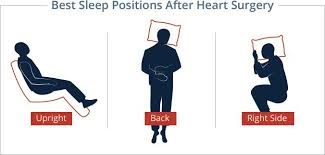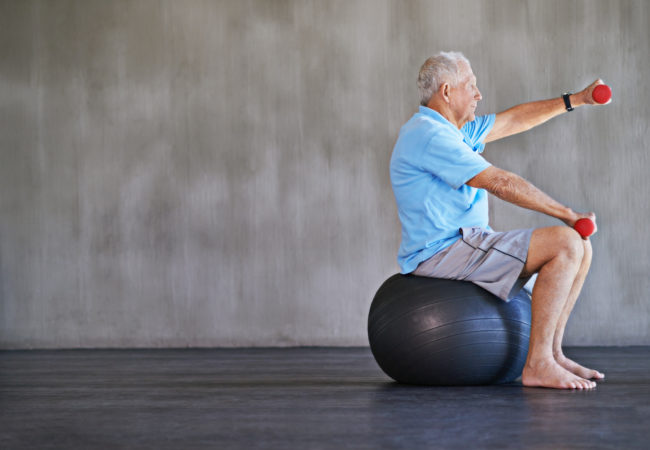As you are recovering after an open-heart surgery – in the hospital and then at home – you may have questions about the best position to sleep : it can be a challenge. It is important to find a comfortable sleep position that works for you. Also, knowing how to move in and out of bed safely helps protect you and your healing incision.
While you’re in the hospital as an inpatient, your physiotherapists will work with you and teach you exercises to build strength and endurance. That will help you move with more confidence, get up out of bed more easily and be more active during the day. All of the activities will in turn improve your ability to sleep. Any form of extra assistance with mobility, like a walker, as you recover, can be used additionally as you learn how to manage moving around and getting out of bed.
Once at Home
Once after coming home following open-heart surgery : there is increased satisfaction in sleeping in your own bed. There are few restrictions like :- you should still avoid sleeping on your stomach – even if it’s always been your go-to position. Instead, experts offer the following suggestions:
- Sleeping on the back : Sleeping on your back aligns the head, neck and spine and avoids putting any pressure on the chest.
- Sleeping on the side: Sleeping on the side is permitted and you don’t necessarily have to sleep on your back. Patients can sleep on the side with some pillows propped up behind them.
- Getting out of bed: When getting out of bed, it’s advisable to roll over to your side rather than trying to sit straight up.Patients should position themselves at the side of the bed and then they can come from a side-lying position upward.
- Minimize napping during the day: As you regain strength and recover, limiting naps or rests during the day can help create a better sleep routine at night.
- Pillow support on either sides and under the head: If you tend to roll in your sleep, you can use a bed wedge or regular pillows to help support and maintain a comfortable position.
- Reclining: During the first dew weeks of surgery, resting in a recliner is a good option to minimize coughing and breathing problems in the middle of the sleep which might be related to fluid buildup around the heart or lungs. Most of them eventually get better as the fluid build up reduces and the excessive fluid is gotten rid of after open heart surgery. However, having to rely on a recliner continually may indicate health concerns that should be addressed.



